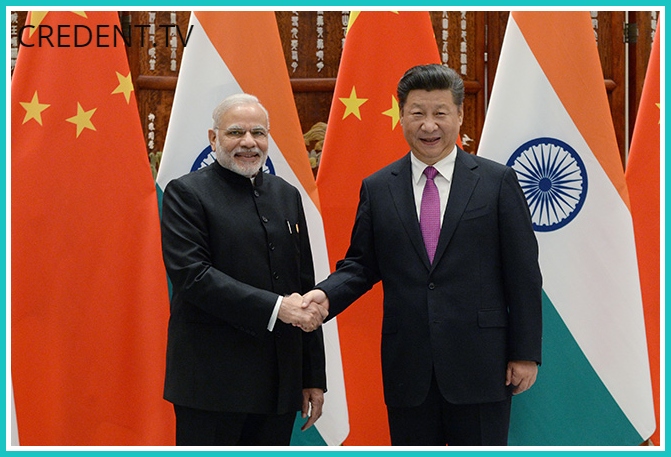BJP
India and China have stable relations, according to China: his G20 presidency and promised to seek to improve relations
Published
8 months agoon

China has backed India’s presidency of the G20. He has also said that the two countries’ relations are stable. In reality, Xi Jinping, the president of China, won’t be attending the G20 summit in India
Li Qiang, the prime minister of China, will take his seat and travel with the group.
Tuesday before the meeting, a statement from China’s foreign ministry was released. We have always appreciated India hosting the summit, he remarked. To make it a success, we look forward to working with every member. The relationship between China and India is steady, and we have kept up various levels of communication.
According to Jaishankar, India has nothing to do with the President of Russia-China’s choice to skip the meeting.
Foreign Minister Jaishankar stated that the decision to not attend the G20 summit was made by the presidents of China and Russia. India is not involved in it at all. There will be participants from both nations during the summit. When the Head of State was absent from the meeting in the past, this has also happened.
Jaishankar commented on the summit’s consensus by saying, “There are many issues on which work has been ongoing for months.” This does not occur overnight. Various ministers are attempting to move the process along.
China will pick its own position in the conference, according to America.
Regarding relations with India, China stated that it is in both nations’ best interests for ties to continue to flourish. We are prepared to put in more effort to improve our ties with India. The United States, on the other hand, stated that China’s attendance in the summit depended on the role they wish to play. This is another alternative if he wants to ruin it by attending the conference.
Read also:-Kay Kay Menon Delivers A Consciously Low-Voltage Performance in Love-All
When asked about the impact of India-China ties on the summit, America’s NSA Jake Sullivan responded, “We think India will encourage China to discuss important issues by joining the summit like all other members.” What China wants there now relies on her.
Following the Galvan altercation, tension rose.
Since the conflict in the Galwan Valley in 2020, tensions between India and China have been rising. Meanwhile, PM Modi and Jinping spoke during the BRICS conference in August. The two presidents also agreed to enhance relations and reduce the number of troops stationed in Ladakh.
Arunachal Pradesh and Aksai Chin were allegedly claimed by China.
On August 29, just a few days later, China published a map claiming Arunachal Pradesh and Aksai Chin as part of its territory. In addition, he displayed Taiwan and the South China Sea in his region. At 3:47 PM, the updated map was published on Twitter (formerly known as Twitter) by China’s government publication.
China had written: “Releasing the 2023 edition of our map is a normal process” on the map. The sovereignty and integrity of China have been taken into consideration when creating this map. Legally, this is ours. We hope that the parties involved would comprehend this and adopt a wise stance on this.
India has objected to this chart and claimed that China had a long history of doing this. Regarding his allegations, nothing occurs.
Xi Jinping involved in domestic issues in China
Chinese President Xi Jinping is reportedly more concerned with the internal situation. The pace of economic growth in China is rapidly declining. In such a circumstance, he has only spent five days abroad this year. Jinping will also abstain from the ASEAN Summit, which will start on September 6. Premier Li Kiang will take his position at the G20 and ASEAN meetings.
The real estate industry, according to a BBC investigation, is to blame for China’s declining GDP. Over the past twenty years, the real estate industry has experienced phenomenal expansion. Corona, on the other hand, caused a sharp fall in property demand. The property’s value was significantly reduced as a result.
You may like
-


Two winners of the Miss USA pageant have resigned, citing disrespect and mental health issues.
-


Why Does MS Dhoni Have a Muscle Tear While Playing for CSK? The ‘Theory’ of an Ex-IPL Team Official Paints a Grim Image
-


पक्षी मित्र योजना में बांधे परिंडे
-


Titan stock drops more than 7% as Q4 results fell short of expectations: As stated by brokerages
-


The Indegene IPO is now up for subscription: Should you bid?
-


DAV Centenary Public School Jaipur organises the splashing Pool Party for the kindergarten Section

